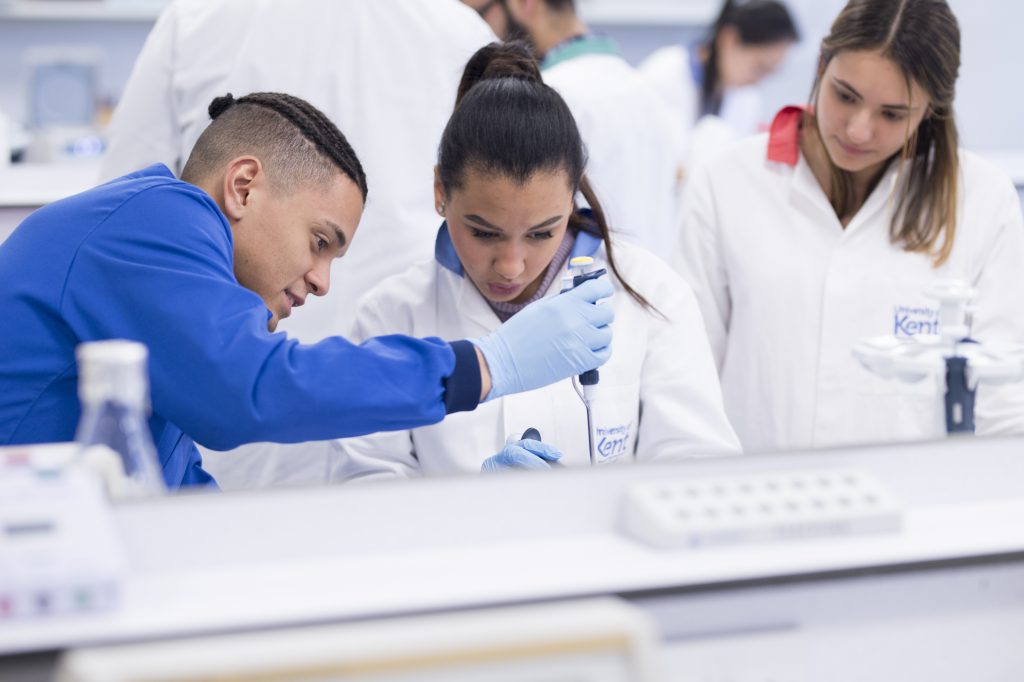
If you feel you would like to gain some more research experience, check out our one-year Master’s by Research opportunities
The projects below are currently available;
Exploring the eukaryotic gut microbiome in farm animals (Dr Anastasios Tsaousis)
The project will investigate the effect of microbial parasites on animal health and how these infections can be identified, treated and contained to prevent spread to other herds. The research is supported by a new EU grant.
Exploring a role for APOBEC3 genes in mammalian evolution (Drs. Marta Farre-Belmonte and Tim Fenton)
APOBEC3 genes prevent infection by retroviruses and retrotransposons, but at a cost. Off-target activity also generates mutations in human cancer cells. This project will use computational and wet-lab approaches to examine whether APOBEC3-generated mutations in the germline of different animal species also contribute to evolutionary change.
New approaches to rapid protein structure determination by NMR (Drs. Ben Goult Jose Ortega-Roldan and Gary Thompson)
This project will develop fast but accurate methods to calculate protein structures using the latest techniques available to NMR spectroscopists. It will include wet-laboratory work, NMR and computation. In-depth training in the use of NMR and python programming will be an integral part of the project.
Investigating the anaerobic biosynthesis of 5,6-dimethylbenzimidazole (Dr Andrew Lawrence)
This project looks at the “chicken or egg” question of whether vitamin B12 is required for the biogenesis of itself. The project will investigate the role of vitamin B12 in the biosynthesis of 5,6-dimethylbenzimidazole, an essential component part of the vitamin B12 structure.
Effects of host-microbiome interactions on the ageing nervous system (Dr Marina Ezcurra)
Metagenomics has identified that numerous neurodegenerative and psychiatric diseases are associated with the composition of the microbiome, but we understand very little about the underlying mechanisms. This project will use a range of approaches to investigate these links including the development of a high-throughput assay using C. elegans as a model system.
CLIC1 structure, function and drug binding inside tumour cells (Dr Jose Ortega-Roldan)
CLIC1 is an important membrane protein in tumour progression. The aim of this project is to study the activation and inhibition of CLIC1 both from a cellular (fluorescence microscopy) and structural (NMR and X-Ray crystallography) perspective.
Are pathogenic gut parasites important for a healthy gut microbiome? (Drs. Marina Ezcurra & Anastasios Tsaousis)
Microbial gut parasites have long been associated with severe gastrointestinal disease, however, recent research has shown that they are also present in healthy individuals. The aim of this project is to use C. elegans as a model system to further explore the role of these parasites in health and disease, and particularly on how they interact with the host and the rest of the gut microflora
For further information about any of these exciting research projects, or details on how to apply, please contact the supervisor or email our PG coordinator.